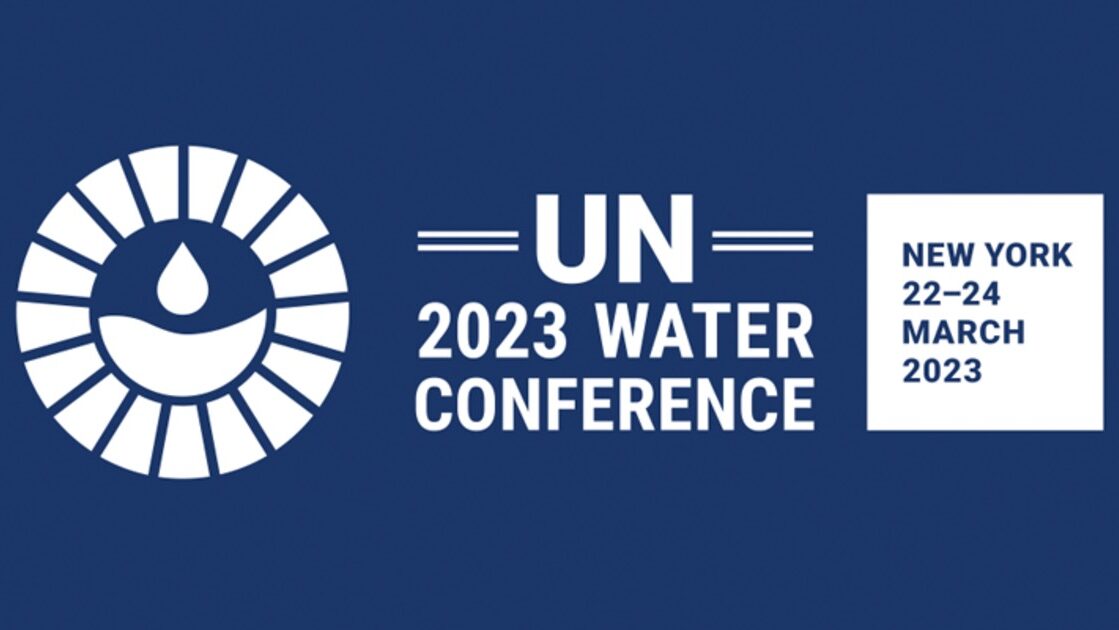Indigenous scholars gathered at The New School last Friday for an official side event of the United Nation’s second ever “Water Conference.” In a two part forum, speakers sought to recenter indigenous knowledge and leadership in water-policy.
For the first time since 1977, the UN’s General Assembly hosted over 2,000 stakeholders and representatives from governments, nonprofits, and academia at their headquarters (HQ) on 42nd Street. For three days they discussed how to address and mitigate the global water crisis, with a goal to “fundamentally understand, value, and manage water better and take concerted action to achieve the internationally agreed water-related goals and targets.”
While the official sessions of the conference lacked indigenous speakers, the UN hosted a number of “special” and “side” events in and outside their HQ that brought indigenous voices to the forefront of water issues.
On the final day of the conference, 10 indigenous and human rights activists shared their work and research at TNS’s Johnson Hall. Seeking to change the underlying principles and systems of water management, members of indigenous communities from across the world shared the traditional teachings that run through their native cultures. They stressed the sacredness of water and its integral role in spiritual and physical sustenance. The speakers emphasized a need to change the dominant perspective on water – to no longer see it simply as a resource, but rather a living, breathing relative.
“For thousands of years we lived on this continent and it remained much as it was in the beginning under our care. We have used the knowledge passed down from our ancestors,” opening speaker Leonardo Figueroa Helland quoted from Mona Polacca’s piece in Indigenous Message on Water.
Data shows that Indigenous communities are some of the most vulnerable when it comes to decisions that affect the environment. Despite only retaining 20% of the world’s land and making up 6.2% of the global population, indigenous people protect 80% of the world’s biodiversity, according to a World Bank report. Of all water related conflicts tracked by the Global Atlas of Environmental Justice, 41% involve indigenous communities.
Speakers advocated for the end of pollution and large-scale disturbances of land and water systems. They stressed that indigenous leadership is essential for real solutions.
“The root cause is being afraid of asking what nature really needs,” said speaker Dr. David John Groenfeldt at the event.
Groenfeldt, founder of the Water-Culture institute, presented an alternative to the UN’s standard approach to water management. He noted that policy-makers often use an ‘integrated resource management’ method, which focuses on water use and seeks to divide water in the most optimal way to address needs. He believes that, instead, all water-related decisions need a core ethical framework, one connected to indigenous values.
Groenfeldt concluded that using indigenous knowledge and ethics is the next step towards genuine sustainability. “The people sitting in the UN right now attached to this Water Conference, they are already doing the easy things to do and the sometimes not so easy [things to do] in water conservation…and still it’s not enough,” he said.
“The way we need to think differently is very similar to the way indigenous people tend to think about water. There’s a role model for us. And I don’t know how far we’ll get in ‘we’ll think differently’ without the spiritual underpinning,” Groenfeldt said.
Human rights activist, Roberto Mukaro Borrero, demanded that Indigenous people’s rights and sovereignty be respected, especially when it comes to land and water issues. He believes indigenous voices are key for the protection of the natural environment. “We’re not just looking at ourselves as human beings alone. We know that we are a part of all creation…we see it all connected like we are all connected to water…Our protecting of the water is going to help everyone on this planet,” Borreo said at the forum.
No legally binding document came out of the UN’s Water Conference, but UN secretary general António Guterres urged the over 700 contributors who committed to the Water Action Agenda to act on their promises. “Water needs to be at the center of the global political agenda,” Guterres said in his closing statements at UNHQ.
Some didn’t feel it was enough. More than 100 academics and water experts signed an open letter that expressed concern over the UN’s lack of urgent and impactful action. They wrote, “coming out of this Conference and going forward, we need to see binding agreements, cohesive action and transparent reporting.”
The letter stressed the need for greater levels of reform and aid to address systemic failures. “Without accountability for systemic change at its core, the Water Action Agenda risks irrelevance.”
Dr. Rāwiri Tinirau, a Māori scholar and activist, shared the desire for urgency. He believes it’s taken too long for governments to align with indigenous values, “Get on board or get out of the way,” Tinirau said at the end of the Indigenous Water Ethics forum. “Our people know what needs to be done, and we’re just gonna get on and do it anyways with or without you.”
You can watch the full Indigenous Water Ethics event here








Leave a Reply